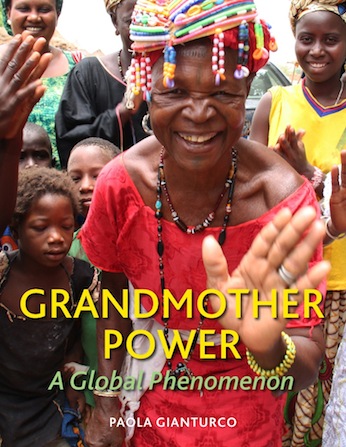With the publication of Hanna Rosin’s The End of Men, we are back to looking at things as men vs. women, a disturbing thought. (In fact. some female friends recently commented on my numerous pro-men columns; sure, I’ve written those, but being pro-men where there are injustices doesn’t mean I’m anti-women.)
Whether you agree or not that women are surpassing men in income, self-esteem, careers, education, etc., there is one thing women are indeed surpassing men at — surviving. Although we’re all living longer, more women live longer than men and that means by 2050, women will make up 61 percent of the 19 million people aged 85 and older, according to a study by the Stanford Center on Longevity, New Realities of an Older America. And more of us will be living alone; since 1970, the number of women living alone more than doubled, from 7 million to 18 million in 2007. For those not living alone, more older women are likely to live with relatives than a spouse. 
It seems as if in this respect I and other boomer women will indeed be experiencing the end of men as we age. It reminds me of Voyage to the Planet of Prehistoric Women, a rather B-level (or below) movie I saw as a kid about a planet populated by women and some lizard-like monsters. When a spaceship with male astronauts landed there accidentally, it created quite the commotion.
What are we to do with all these older women? And, what are we women going to be doing ourselves? Clearly, there are some problems ahead for all of us — where will be house all these elderly women, how will be deal with the expected rapid rise in dementia and Alzheimer’s, etc., etc. But when it comes to what women will be doing, I am encouraged by what Mill Valley photojournalist Paola Gianturco has documented — another global women’s movement, the rise of the activist grandmother.
There are more grandmothers now than ever before, she says — 38 million in the United States alone — and many are healthier, more financially stable, better educated and a lot younger than grandmothers of years past. Some two million children live with their grandmothers in the U.S., sometimes because of illness, immigration issues or incarceration. But many more grandmas are caring for their grandkids part or full time because so many parents need help, she explains.
Women are not aging quietly, that’s for sure!
But as the mom of two wonderful young men, I surely hope it isn’t the end of men. I want to see men and women work together to make this world a better place, to give each gender more freedom to become the best they can be. There are more men who are choosing to stay at home and men who are making the best of it even if it isn’t their choice.
We’re just not there yet.
Where are the grandpas in all of this, I asked Gianturco. She didn’t look into that; her focus was and has always been on women. And, as she notes about grandpas, “sadly there are fewer of them since women live longer.”
But, if men are seeing their peers slip and slide in this alleged world of women, why aren’t they rising up as women have and continue to do to correct the injustices, to support each other, to help each other expand what it means to be a man?
Some men are gathering around isolated issues, like child custody, and they are making changes; there are more custody battles than ever before because more men want more time with their kids after divorce. Still, that’s a small amount of men.
As Rosin writes, many men seem “haunted by the specter of a coming gender apocalypse.” When she asks one young man, his answer is discouraging: “It’s because our team is losing.”
If men are “losing,” women will, too.
Rosin believes that the “end of men” can be averted if men “expand the range of options for what it means to be a man.” I agree. And to support each other in doing so. If women can gather together to fight for equality and to care for their grandkids and help change the world, so can men.
Guys, are you up to the challenge?

















I have never understood what Rosin thought was going to save men – it sounds to me like she thinks men need to start taking jobs traditionally held by women. But those jobs tend to be less well-paid! Part of the problem with growth in the service sector is that those jobs are stinky for anyone. And as far as child care goes, not only is it paid at the bottom of the barrel, but many people won’t hire guys.
Or is the idea that women will marry men and support them while they raise kids? So far women seem to want to do that job more than men do. One thing we do not about child care is that it’s not good for kids when someone who doesn’t want to do it is forced to.